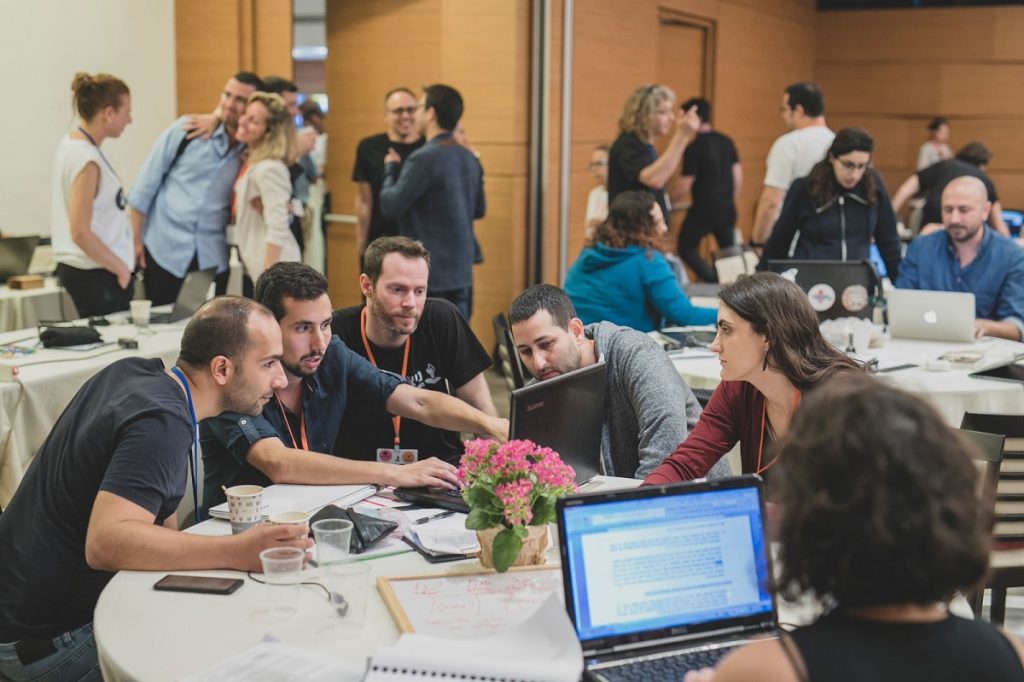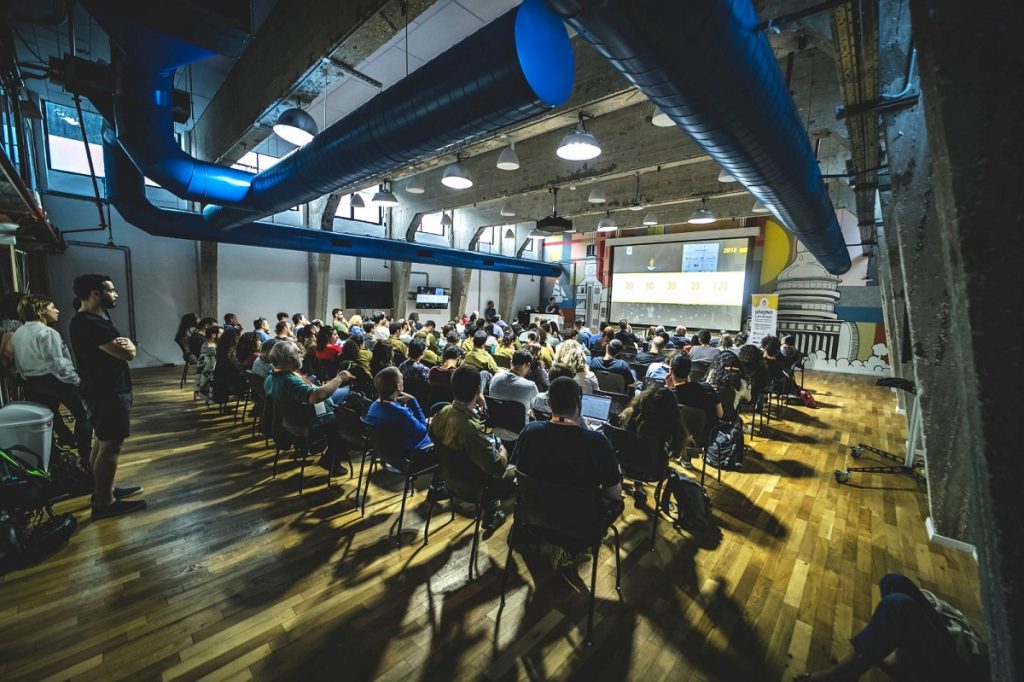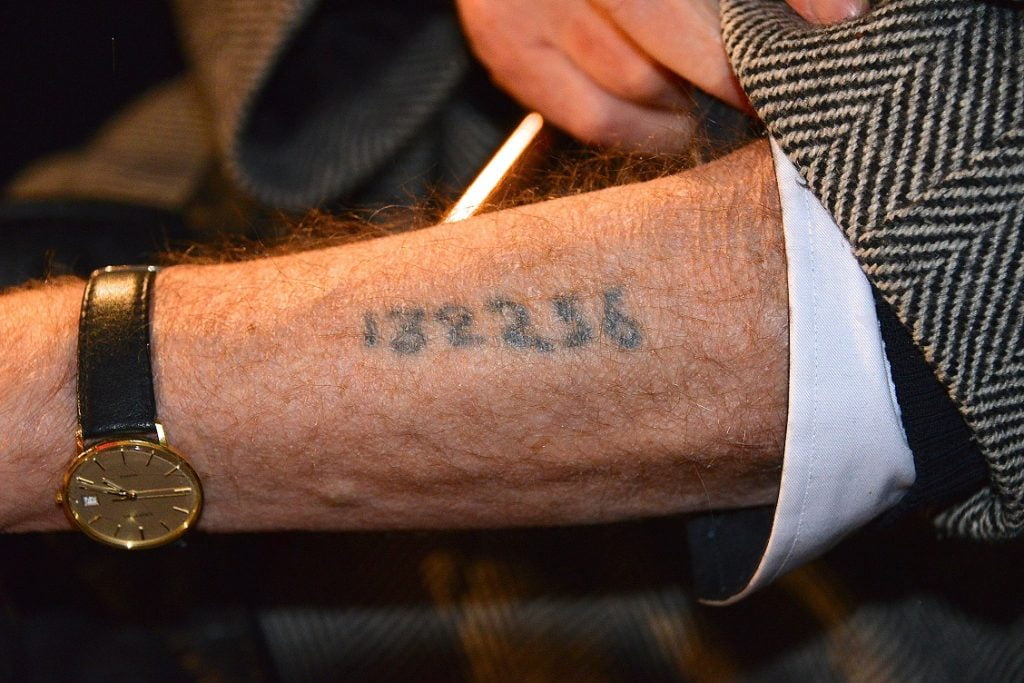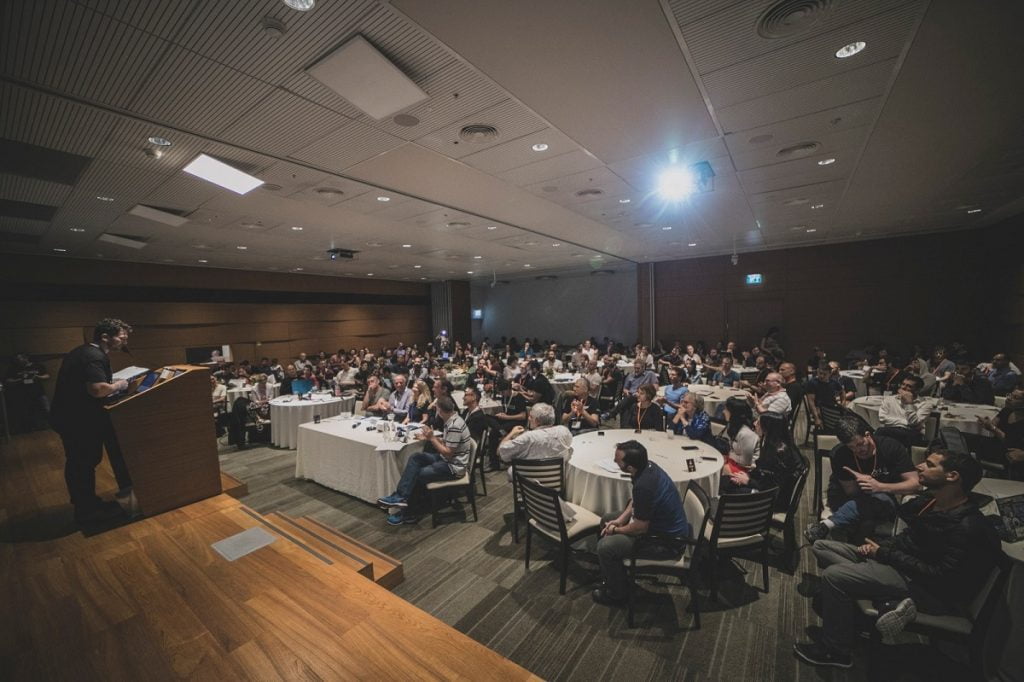Some 200 Israeli entrepreneurs are expected to take part in the second annual Spark Hackathon in Tel Aviv on Thursday, an event that aims to create workable solutions for challenges in education, remembrance, and quality of life for Holocaust survivors.
The 30-hour hackathon at the Tel Aviv Stock Exchange will see participants take part in the creation of various applications and tech products focused on benefiting survivors. They will cooperate with a number of non-profit NGOs and organizations that work with Holocaust survivors, including the Foundation for the Benefit of Holocaust Victims in Israel, as well as about 20 mentors from companies like Microsoft, EY and NICE Systems.
The Spark Hackathon was established by TLV Starters, an organization that is also behind the “Startup Guide Tel Aviv.” The event is significant for TLV Starters for a number of reasons, not least of which is the opportunity to use the products created at the event as a tool to teach young people about the Holocaust.
SEE ALSO: A Holocaust Story For The Social Media Age: Eva ‘Posts’ On Instagram About Life In 1944’s Hungary
“In five to 10 years, no [Holocaust survivors] will be left. Someone needs to take care of the day after tomorrow,” TLV Starters co-founder Erez Gavish tells NoCamels, “What’s going to happen when history repeats itself? We are just doing our humble part with providing a platform which enables people to create a solution with applications that can help. They will not replace the survivors but will be another means to an end that people will not be forgotten. This is the power of technology.”
Gavish’s concerns are well-founded. Recent studies point to rising levels of Holocaust denial and ignorance, combined with rising anti-Semitism.
Earlier this month when Israel marked Holocaust Remembrance Day, to honor the six million Jews killed in World War II, Tel Aviv University released an annual report on the state of antisemitism worldwide – and the results were alarming. The report by the Kantor Center, headed by European Jewish Congress President Moshe Kantor, noted a 13 percent rise in anti-Semitic incidents in 2018 and cited an “increasing sense of emergency” in parts of North America and Europe where Jews once felt safe.
The Kantor Center suggested a number of reasons for the increase including a strengthened presence of classical anti-Semitism due to religiously-based conflicts, and the rise of right-wing parties and extreme right movements. The primary reason, however, was a growing ignorance among younger generations regarding the Holocaust.
The report highlighted a 2018 CNN poll showing that one out of five people between the ages of 18 and 34 in France had said they’d never heard of the Holocaust. In Austria, 12 percent of young people said the same.
According to another 2018 report, a third of American millennials (born between early 1980s and early 2000s) did not know what Auschwitz was and 22 percent had not heard of the Holocaust or were not sure if they had. In the UK, 45 percent of people polled in a separate report said they did not know how many people were killed in the Holocaust. One in five believed fewer than two million Jews were murdered.
Meanwhile, the generation that survived the Holocaust is departing fast and with them, the stories and testimonials some of them have yet to record.
In Israel, a Central Bureau of Statistics report released this year found that at the end of 2017, there were only approximately 200,000 Holocaust survivors still living in the country. Ahead of International Holocaust Remembrance Day on January 27, 2018, CBS estimated there would only about 26,200 Holocaust survivors living in the country by 2035.
Concerned by these developments, Gavish and four other Israeli entrepreneurs – Natan Leibzon, Anat Greenland, Talia Savchenko and Alon Rapaport – set up the first Spark Hackathon last year in an effort to harness the power of technology to promote Holocaust education as well as to help solve some of the difficulties facing Holocaust survivors.
Sign up for our free weekly newsletter
SubscribeThe hackathon gathered 120 participants, resulting in 23 projects created during the event. The winning initiative, called Momento, won for its use of virtual reality and augmented reality to create a visual experience of Jewish sites before and during the Holocaust, offering an authentic reconstruction of buildings, streets, ghettos, concentration camps, and extermination. Second place went to “Hilf” (meaning help in Yiddish), a mobile app that creates an online community to help Holocaust survivors, the elderly and the disabled. The team that developed this app is currently conducting a pilot with emergency medical service United Hatzalah, Gavish said.
Gavish predicts that while this year’s event will have more or less the same number of participants, more people wanted to get involved after the success of last year’s hackathon.
“When we started spreading the word, a lot of people approached us…saying, ‘Hey, what are you guys doing? You’re going to do it again this year, so how can we help?” he says.
A panel of judges, including Microsoft Israel CMO and COO Shira Fayans Birenbaum, and Noam Canetti of the EY group, will choose the winning team this year. The first place prize includes NIS 10,000 ($2,802) as well as two months free access to the Microsoft Azure cloud platform. Second place will receive NIS 5,000(about $1400) and third place will win NIS 2,500 NIS ($700). Tech For Good will also provide consultations to all winning teams.
Partnering with the IDF
Gavish says the main difference between the two events is that one-third of the participants this year will be soldiers in the IDF. Gavish estimates roughly 35 of the 120 participants will be from the Israeli army.
Gavish says hackathon will host developers from the IDF for two main reasons.
“The first is that they can reach out to coders and developers in the army. There are very good developers there,” he says. The second is that TLV Starters hopes army participants will take some of the apps and tech projects that succeed in the hackathon to use in army programs that educate about the Holocaust.
“If some of the projects could actually get kickstarted within this event, then the IDF can take one of them and use it on a daily basis,” he says, “We hope that some of the projects will actually succeed and be a part of the Israel Defense Forces’ routine in educating soldiers.”
SEE ALSO: VR Tech Is Playing A Key Role in Holocaust Awareness and Education
One of the army’s most important Holocaust education programs is the Friend of the IDF Witnesses in Uniform program where 50 officers from different combat units are brought to Poland to bear witness to the atrocities of the Holocaust, also learning about Israeli history and how the state gained its independence.
Igniting the spark worldwide
Gavish says TLV Starters is also partnering with a Jewish student organization in Vienna, Austria and a representative from that organization will be joining the hackathon. There are also plans to create a Spark Hackathon in Vienna in November and another in Munich, Germany later this year.
“We spoke with quite a lot of people from other locations around the world. We know that what they see over there is quite different from what we see in Israel. They live in a different environment and their educational system is very different. This is why I believe that an event like this – efforts like these – are quite crucial for the next generation of Jewish and non-Jewish people outside of Israel,” Gavish explains.
Related posts

Editors’ & Readers’ Choice: 10 Favorite NoCamels Articles

Forward Facing: What Does The Future Hold For Israeli High-Tech?

Impact Innovation: Israeli Startups That Could Shape Our Future









Facebook comments